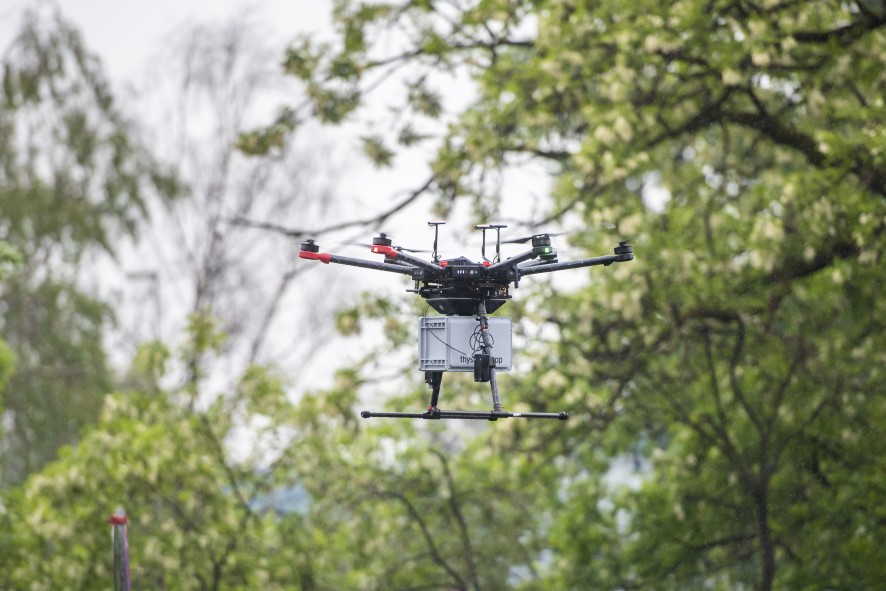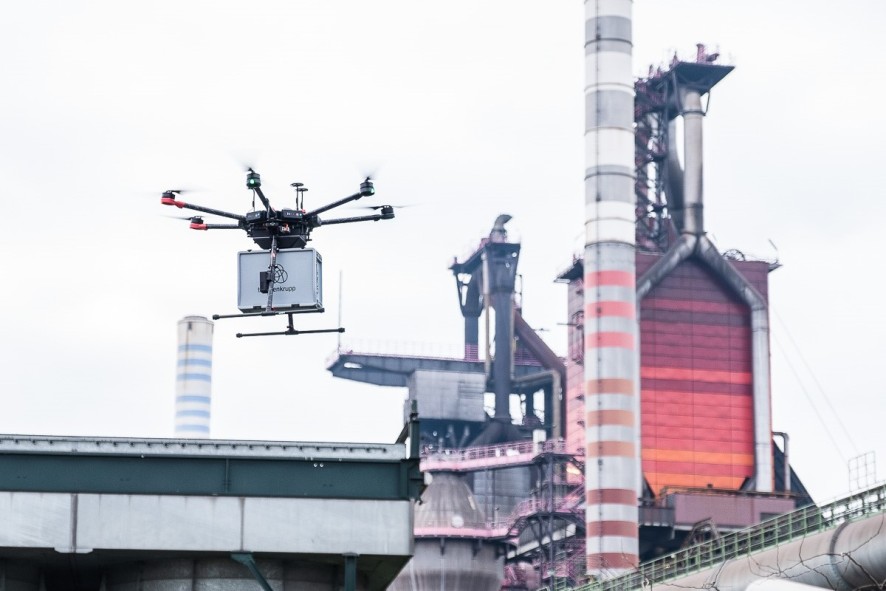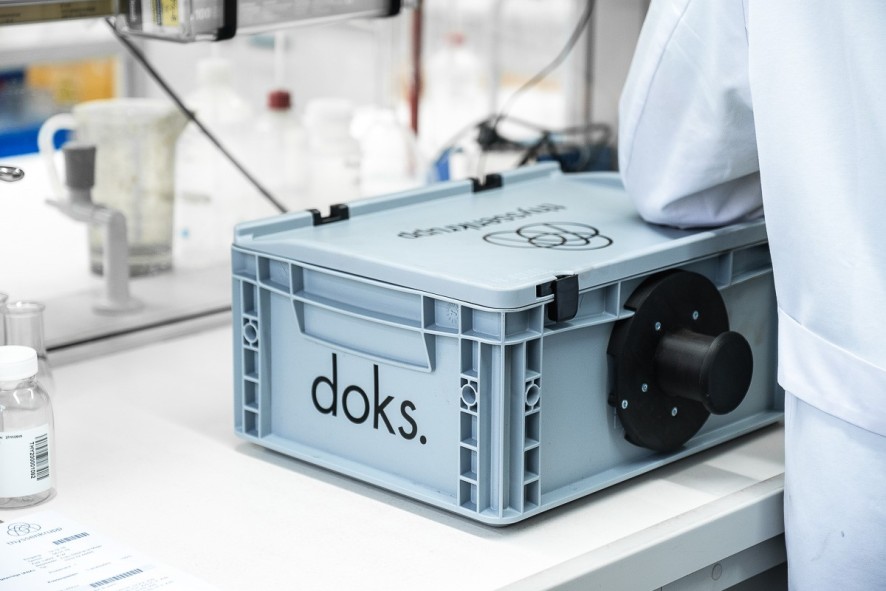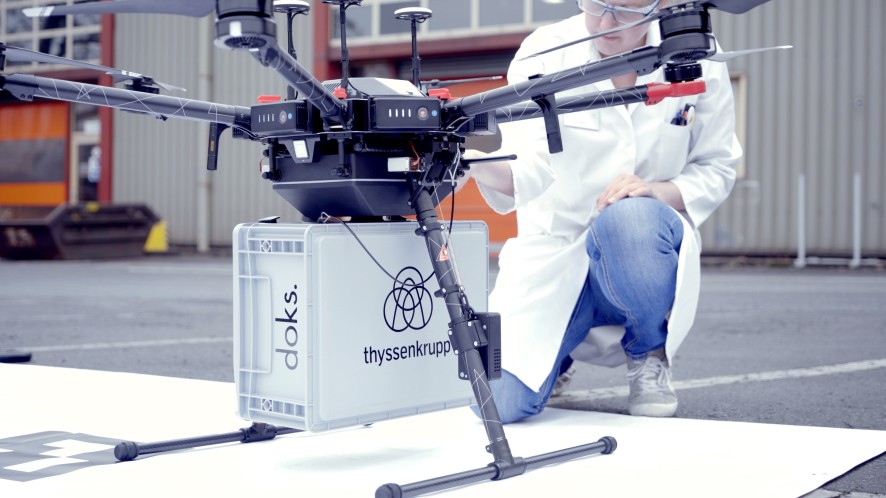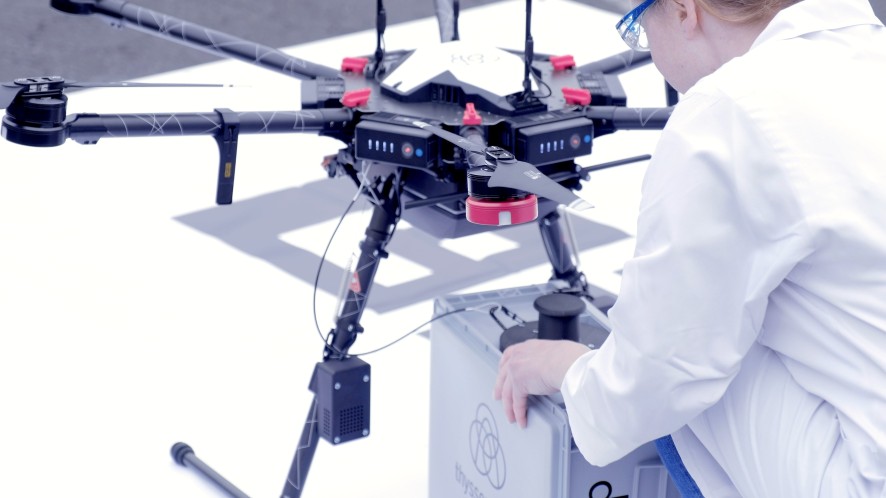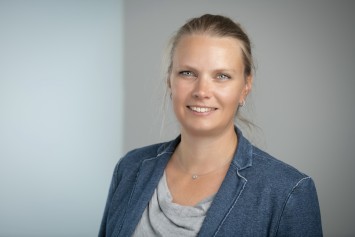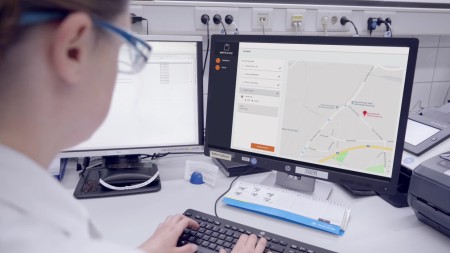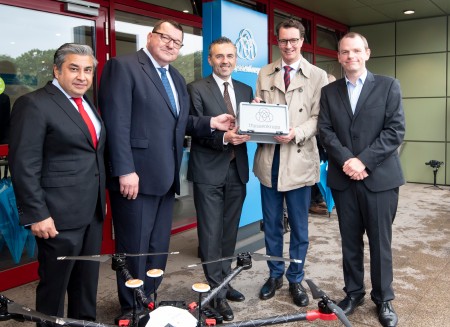Trade press, 2019-05-21, 04:30 pm
Successful demonstration flight: Autonomous drone speeds up delivery of laboratory samples at thyssenkrupp Steel by around 70 percent
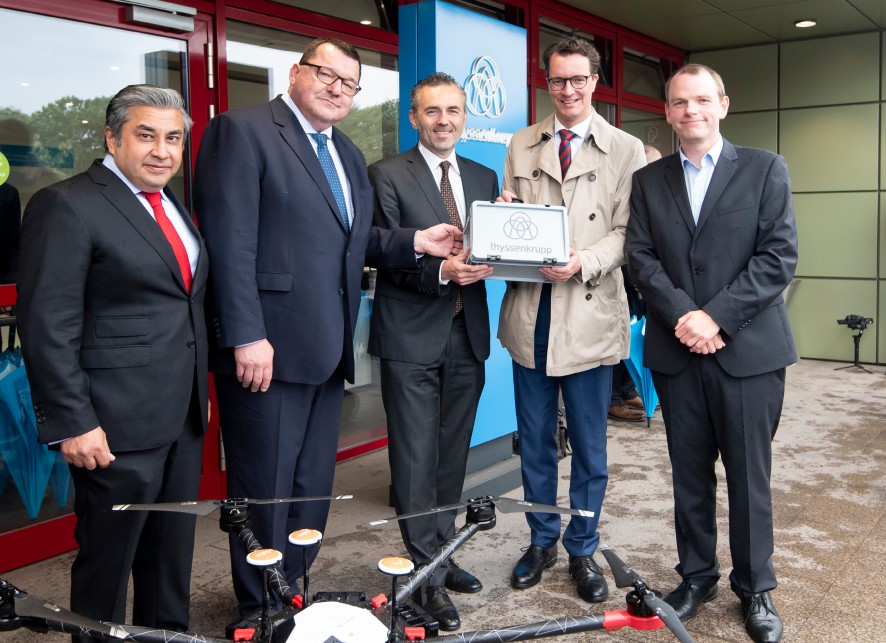
(From left: Premal A. Desai, CFO thyssenkrupp Steel Europe AG, Andreas J. Goss, CEO thyssenkrupp Steel Europe AG, Thomas Jarzombek, Federal Government Coordinator of German Aerospace Policy, NRW Transport Minister Hendrik Wüst, Dr. Thomas Lostak, Project Head)
It’s a real high flyer: delivAIRy®, the drone that was the center of attention at thyssenkrupp’s Duisburg site today. NRW Transport Minister Hendrik Wüst watched on as, with a gentle hum, the transport drone took off on its first official demonstration flight. It sped off over the steel mill and just a few minutes later dropped off its payload of laboratory samples safely and fully automatically.
“This test flight of an autonomous delivery drone shows that North Rhine-Westphalia has what it takes to be a leader in the development of innovative technologies. We’ve got the scientific and business skills and ideal test conditions. What we’ve seen here on a small scale shows the way forward for mobility in our cities. In such a densely populated state as North Rhine-Westphalia with such heavy traffic, using airspace as the third dimension of mobility makes good sense and opens up new options,” said Wüst.
Currently a thyssenkrupp Steel employee picks up small samples of raw materials such as iron ore and coking coal from the raw materials processing unit at the plant’s Schwelgern port twice a day and drives them by car to the company’s central laboratory facilities. Random samples of these starting materials are examined in the lab to check their quality for steel production. The route to the lab involves driving over several unprotected rail crossings – a time consuming, expensive and also risky process.
“Projects such as this one at thyssenkrupp show clearly that drones can deliver value added when used professionally,” said Thomas Jarzombek, Federal Government Coordinator of German Aerospace Policy. “Innovators all over Germany are establishing new drone-based business models. The federal government is supporting this emerging market, for example by providing funding for research and development work. But the regulatory conditions also need to be right.”
A “high-flying” plan
To make transportation of laboratory samples faster and safer while also reducing traffic on the plant premises, the Technology & Innovation team at thyssenkrupp Steel came up with a high-flying plan: to deliver lab samples by air. For this they partnered with doks.innovation GmbH, the company that developed both the autonomous drone delivAIRy®, which measures 1.20 meters across and can carry a payload of 4.5 kilos, and a patented technology for autonomous load pickup.
“This is one of many projects we are working on to build the steel mill of the future: more modern, more digital, more sustainable. We don’t push digitization projects for the sake of it, only when they deliver clear progress. The drone is an excellent example,” said thyssenkrupp Steel Europe CEO Andreas Goss. delivAIRy® can cover the 2.2 kilometer route in just six minutes, while by car it can take a quarter of an hour or longer depending on the weather and the traffic. That makes the delivery process more than twice as fast.
Movements in view at all times
Two specially trained employees at a central control desk follow the drone’s movements constantly. They know exactly where the drone is and if required can bring it down at one of six emergency landing points along the route. Parachutes, redundant flight controls and a combination of visual and GPS navigation are additional safety factors.
Flight permits will be required from the North Rhine-Westphalian Aviation Office for the six-month pilot phase and regular air operations; the applications are currently being processed. If the trials transporting laboratory samples are successful, the drone could later be used in other areas of the company’s internal logistics. “The drone can be requested individually via an app. That means time-critical deliveries on the plant premises could be fully automated and digitized,” said project head Dr. Thomas Lostak. “The project has gone down very well with our colleagues.” The use of drones gives concrete form to the abstract concept of digitization. It is giving fresh momentum to other digitization projects.
